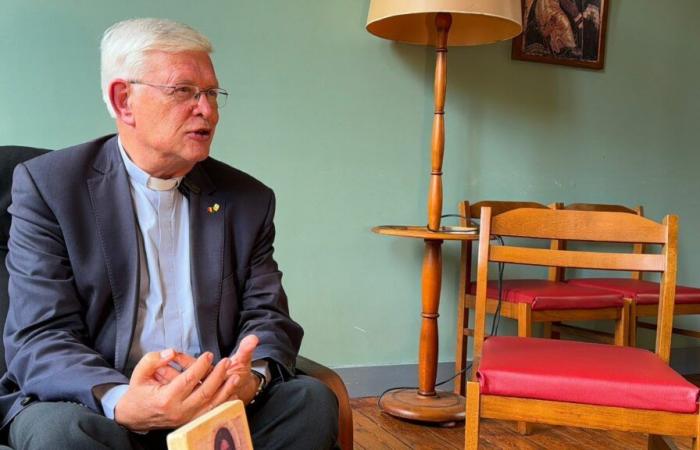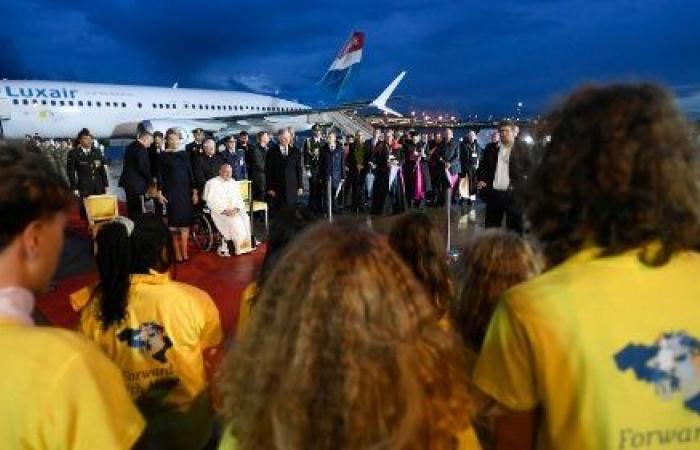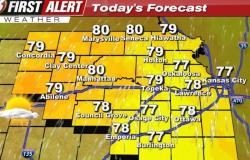Father Tommy Scholtès, French-speaking spokesperson for the Episcopal Conference, shares his expectations before Pope Francis’ visit to Belgium. The Sovereign Pontiff will be in Belgium from Thursday 26 to Sunday 29 September.
Joseph Tulloch – Special Envoy to Brussels
Pope Francis has arrived in Belgium for a four-day visit. A brief stopover in the heart of Europe, it stands in stark contrast to the Holy Father’s recent trip to Southeast Asia and Oceania. Why is the Pope coming to Belgium and how is the local Church preparing for this visit? Vatican News spoke with Father Tommy Scholtès, SJ, French-speaking spokesman for the Belgian Bishops’ Conference.
What are your expectations and hopes for the Pope’s visit?
So my expectations are that it will be a joyful moment, a moment of confirmation, a moment of encouragement, a moment of encounter in the sense that many people will address him. Other people than the Pope will give speeches. There will also be Church leaders, there will be the king. There will be anonymous people, there will be the rector of Louvain and Leuven. So many people will speak to him and I think it is very important that we feel that the Pope is first and foremost a pastor, someone who wants to dialogue, to listen and then to be able to respond to these people in these different situations.
Compared to other countries the Pope has visited recently, Belgium is quite secularised. What role does a papal visit play in such a context?
So it is true that Belgium is a secularized country. The Catholic religion is one of the religions present. We cannot say that there is a strong Catholic identity. There is a great Catholic history.
Unfortunately, sexual abuse in the Church has contributed to a great weakening of the Church, and I understand this because there have been many tragedies in the area of sexual abuse and we must take them into account. And the Pope, moreover, will take time to receive victims.
But I think that what I can expect most is a breath, I would say the breath of the Spirit, a life, an encouragement in which a word must be said. It must be said first and foremost by the Pope of course, but by the whole Church and by all the Christians of Belgium, to live the Gospel not only in words, but in deeds. And even if today the Church is perhaps less strong, it is perhaps also a certain lesson in humility. But the main thing is that Pope Francis himself said: In Morocco, the greatest danger for a Church is not to be a minority, it is to be insignificant. And so, the most important thing for us in Belgium today is that the Pope tells us again the meaning of the Church in a secularized society.
We are here at St. Michael’s College, where the Pope will meet with you and your Jesuit brothers on Saturday. What does it mean for a Jesuit community to have such an intimate encounter with the head of the Catholic Church?
So I think it’s a moment of great emotion. We feel that in the community, it’s something that is very important. A little mysterious too. The Pope will be natural and we will also ask him for some advice. What he wants to tell us, I will say in a heart-to-heart manner, not only in an official speech, but in a heart-to-heart manner. What he wants to say to Jesuits involved in a city that is a little cosmopolitan, capital of Europe, capital of NATO and a city also where the Muslim community is also very present. I think we will also talk about vocation to religious life and the difficulty of fully committing oneself to young people, also in the society of Jesus. I think we will talk about his personal life and how he encourages us to live in our daily lives, not only our official activities or our public activities, but also our life of prayer. He certainly has very good advice to give us and the fact that it is said to us live will touch hearts even more.







